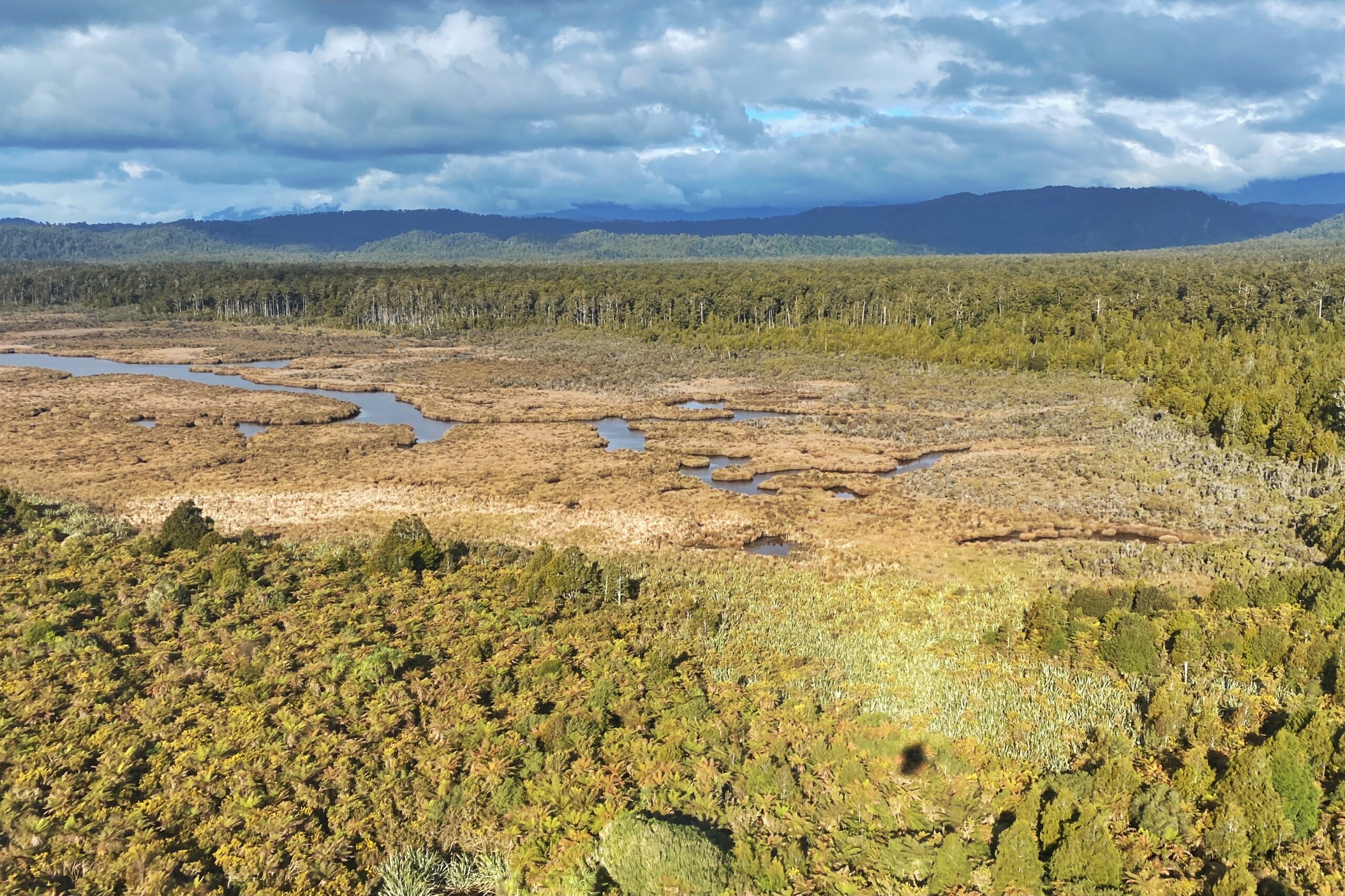
Phase 1 of predator elimination work is continuing in the South Ōkārito block
Thursday 18 November 2021Phase 1 of the South Ōkārito aerial operation continues this week, with the second of two non-toxic prefeed applications taking place on Thursday 18 November. Using non-toxic prefeed bait gives predators a taste for the pellets, which they learn to treat as a food source – increasing their uptake of the toxin bait that is subsequently presented to them.
The toxin application – the final step of Phase 1 – will take place no sooner than 22 November.
There will be no aerial operations over the festive holiday period. Phase 2 is expected to begin in late January.
Just like the earlier prefeed application completed on 3 and 4 November, the second prefeed will involve:
- Closing the Forks-Ōkārito Road between 10am and 2pm while helicopters are operating overhead and road crews safely undertake post-sowing inspections.
- Closing all DOC tracks within the operational area, as well as beach access south of Ōkārito village. ZIP staff will be stationed on site and will advise when these facilities are re-opened.
- Continuing the trial use of a drone to precisely sow bait along the boundary edge of the operational area. The drone is being deployed, under the watchful eye of a pilot and tracked with GPS, to see how this technology can be used to eliminate predators. Helicopters, using GPS guidance systems, are still doing the majority of the sowing
- Using non-toxic prefeed bait that is dyed green. This is to support the work done to train kea to avoid eating cereal bait (they have already learnt to avoid look-a-like baits because those ones temporarily make them feel sick).
In conjunction with the aerial operations, ZIP have now begun baiting some of the ground-based predator elimination devices that are around the perimeter of the block. Combining aerial and ground-based operations, along with cutting edge technology, gives the best chance of success for the Predator Free South Westland project.
Removing predators from South Ōkārito, and throughout the PFSW project area, will enable rowi, kōtuku, kea and other taonga to thrive. Eliminating possums also removes the risk of bovine TB for the local farmers. Without these predators around, there will be no need for repeated landscape use of toxins. Furthermore, this project is creating jobs, and maintaining employment, for many in the local region that has suffered economic hardship from the significant loss of tourism.
Your support for this important mahi is very much appreciated – we acknowledge that there may be some inconvenience along the way. Thank you for doing your part to help make South Westland predator free.